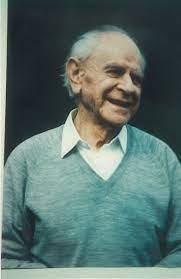
Karl Popper, one of the intellectuals who gave rise to the anti-populist conception of democracy that has prevailed in the West since the Second World War.
3,535 words
Part 5 of 9 (Chapter 1 here, Chapter 4 Part 1 here, Chapter 5 Part 1 here)
Whereas liberal elites had always harbored a cynical and technocratic rejection of the fundamental premises of popular government, after the Second World War “the highly educated [also began] to deplore working-class movements for their bigotry, their refusal of modernity,” and their apparent instinctual tendency towards nationalism and authoritarian leaders. They became openly and dogmatically hostile towards all forms of “collectivism” and solidaristic political movements because they identified popular social organization as fundamentally incompatible with liberalism’s hallowed individual rights and liberties. Post-war elites embraced anti-fascism and anti-populism as two necessary tenets of contemporary liberalism. (more…)